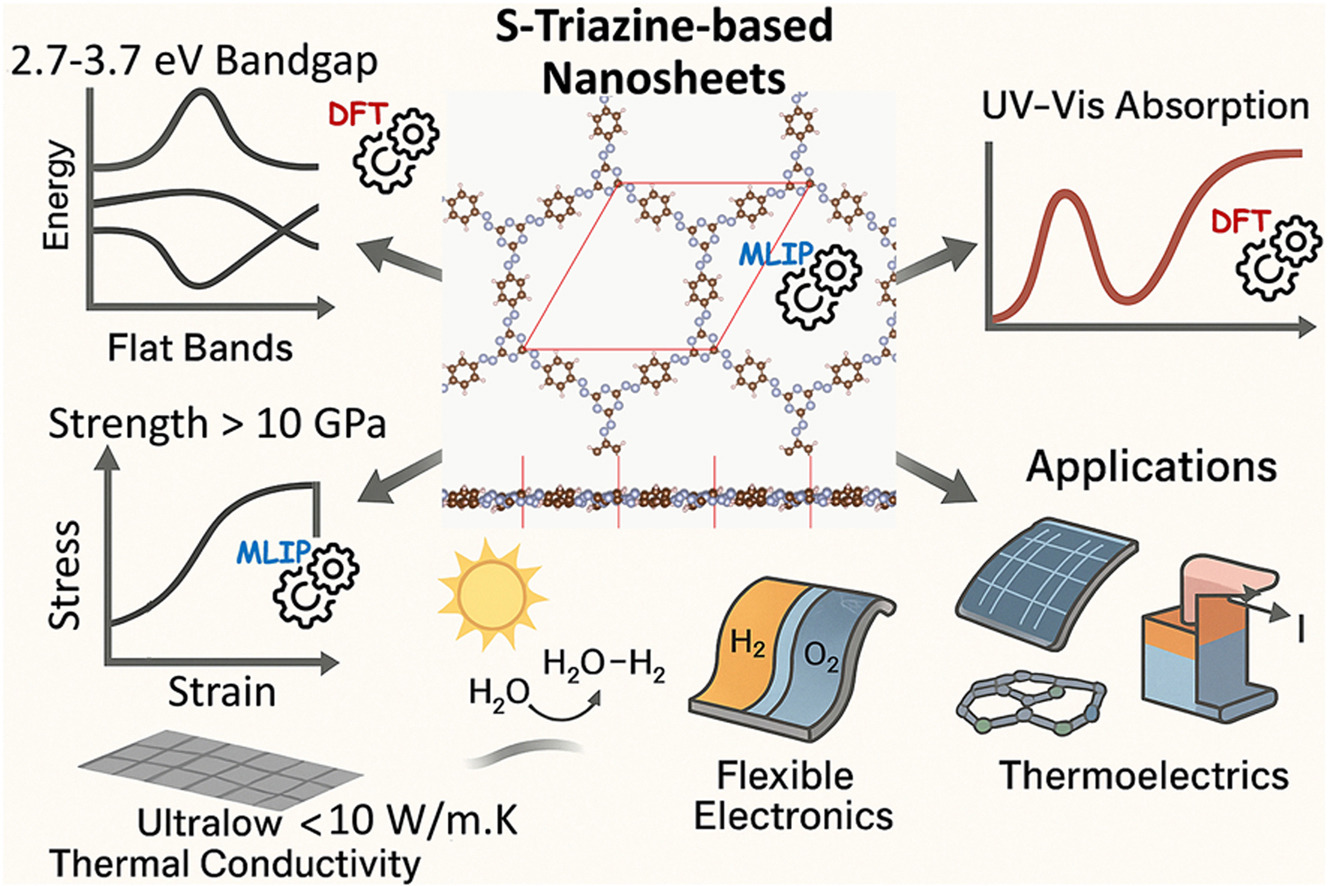New Publication Co-Authored by Masoud Shahrokhi!
Machine learning-assisted first-principles study of structural, electronic, optical, thermal, and mechanical properties of novel s-triazine-based organic framework monolayers
Link here: https://doi.org/10.1016/j.carbon.2025.121092
Abstract:
Nanoporous carbon-nitride covalent organic frameworks (CN-COFs) represent an emerging class of nanomaterials with tunable architectures and scalable synthesis routes. Recent advances introduced four novel CN-COFs nanosheets, featuring hybrid benzene/s-triazine cores. Using these advances as a foundation, we designed four CN-COFs with identical structures but slightly different chemistry. We evaluated structural stability, electronic/optical properties, mechanical strength, and thermal transport using a hybrid approach combining density functional theory (DFT) and machine learning interatomic potentials (MLIPs). Complex stable atomic configurations, along with thermal and mechanical properties, were efficiently identified using MLIPs, while electronic and optical properties were accurately analyzed through single-step DFT calculations. Structurally, four frameworks exhibit Kagome lattice symmetry, hosting unique electronic features like flat and Dirac bands, while corrugated configurations induce modified band structures. These semiconductors display band gaps ranging from 2.73 to 3.72 eV, allowing strong photon absorption across the UV-visible spectrum and aligning well with water redox potentials, making them promising for optoelectronic and photocatalytic applications. Despite their highly porous nature, CN-COFs demonstrate impressive mechanical resilience, sustaining strain levels up to around 0.3 and tensile strengths exceeding 10 GPa, significantly surpassing conventional polymers. Additionally, fine-tuning the chemistry of the linkages allows for the occurrence of out-of-plane corrugations, resulting in ultralow lattice thermal conductivity, which is particularly attractive for thermoelectric and thermal insulating applications. Our comprehensive findings confirm the stability, mechanical robustness, ultralow thermal conductivity and appealing semiconducting nature of CN-COFs, highlighting their application prospects in flexible, high-performance optoelectronics and energy storage and conversion systems.

